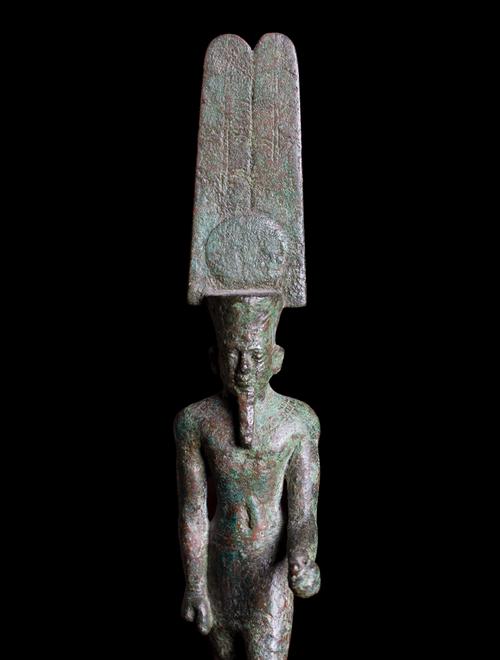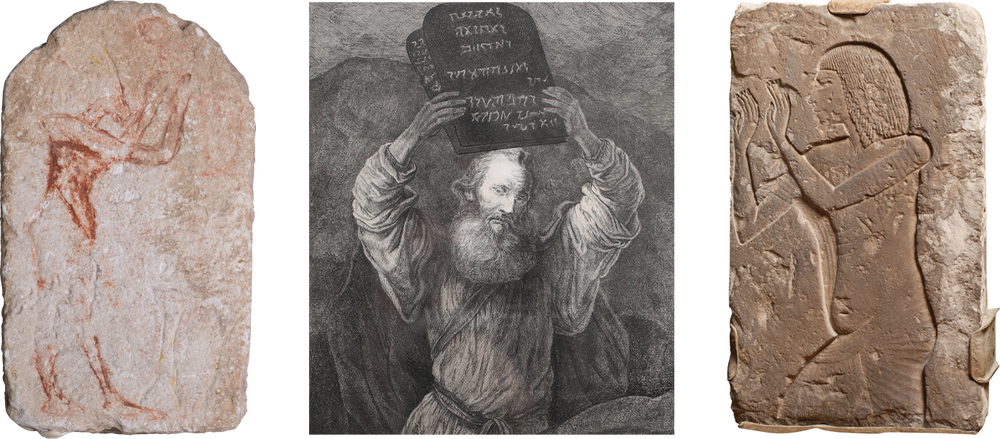
Moses & Monotheism
Egypt takes centre stage in Freud’s final major work Moses and Monotheism, published from London in 1939. In this book Freud makes the scandalous claim that Moses was not a Jew but an Egyptian. Freud speculates that Moses was born an Egyptian noble and was a follower of Akhenaten. Akhenaten abandoned traditional Egyptian polytheism and introduced the exclusive worship of the sun god, Aten. Freud believed that it was Akhenaten’s monotheism which lies behind the Jews’ own adoption of a monotheistic religion.

He also claimed that the Jews, impatient with the harsh strictures of his monotheistic religion, murdered Moses. The history of ancient Judaism is the site of an oedipal murder whose consequences for the Jewish people continue to be felt. As Edward Said remarked, Freud’s interest in the crossover of “non-European” and “European” cultures in the founding of Judaism testifies his frustration with the nationalist and racist theories which were so prevalent at the end of his life. His fascination with Egypt thus resonated profoundly with his complex sense of identity and ancestral roots.
Statuette of Amun-Re, Egyptian Late Period (712 BCE – 332 BCE) © Freud Museum London